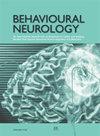探索脊髓损伤后疼痛的生活体验:定性研究
IF 2.7
4区 医学
Q2 CLINICAL NEUROLOGY
引用次数: 0
摘要
脊髓损伤是一种改变生活的经历,会导致功能受限,并增加继发健康问题的风险。脊髓损伤患者认为疼痛是伤后最具破坏性的健康问题,不仅影响他们的社会生活,还影响他们的心理健康。本研究旨在探讨居住在社区的手动轮椅脊髓损伤患者与疼痛为伴的生活体验。本研究采用探索性定性设计来探讨他们的经历。对深入访谈进行了记录和转录,并在 MAXQDA v2020 中使用归纳式主题内容分析法对数据进行了分析。15 名患有截瘫的手动轮椅使用者参与了这项研究,并从他们与疼痛共存的经历中确定了四个主题:疼痛不断潜伏、疼痛比 SCI 的直接后果更严重、疼痛是一种限制、尽管疼痛,生活仍在继续。类别和子类别包括:参与者与疼痛融为一体;疼痛影响睡眠;愤怒、孤独感和自杀念头;以及对未来生活的不确定性。脊髓损伤后与疼痛共存是一项具有挑战性的壮举,有必要对疼痛进行有效管理,这样不仅能改善功能和活动能力,还能改善心理健康和生活满意度。本文章由计算机程序翻译,如有差异,请以英文原文为准。
Exploring the Experience of Living with Pain after Spinal Cord Injury: A Qualitative Study
A spinal cord injury is a life-changing experience that results in functional limitations and an increased risk of secondary health conditions. People with spinal cord injury identify pain as the most devastating health problem following their injury that not only affects their social life but their mental well-being as well. This study is aimed at exploring the lived experience of living with pain by community-dwelling manual wheelchair users with spinal cord injuries. An explorative qualitative design was used to explore their experiences. In-depth interviews were recorded and transcribed, and the data were analysed using inductive thematic content analysis in the MAXQDA v2020. Fifteen manual wheelchair users with paraplegia participated in this study, and four themes were identified from their experience of living with pain: pain constantly lurks, pain is worse than the direct consequences of the SCI, pain is restrictive, and life continues despite the pain. Categories and subcategories included the participants being one with the pain; pain interfering with sleep; feelings of anger, isolation, and suicidal ideation; and uncertainties about what the future holds living with pain. Living with pain after SCI is a challenging feat, and effective management of pain is necessary to improve not only functioning and mobility but also mental health and life satisfaction.
求助全文
通过发布文献求助,成功后即可免费获取论文全文。
去求助
来源期刊

Behavioural Neurology
医学-临床神经学
CiteScore
5.40
自引率
3.60%
发文量
52
审稿时长
>12 weeks
期刊介绍:
Behavioural Neurology is a peer-reviewed, Open Access journal which publishes original research articles, review articles and clinical studies based on various diseases and syndromes in behavioural neurology. The aim of the journal is to provide a platform for researchers and clinicians working in various fields of neurology including cognitive neuroscience, neuropsychology and neuropsychiatry.
Topics of interest include:
ADHD
Aphasia
Autism
Alzheimer’s Disease
Behavioural Disorders
Dementia
Epilepsy
Multiple Sclerosis
Parkinson’s Disease
Psychosis
Stroke
Traumatic brain injury.
 求助内容:
求助内容: 应助结果提醒方式:
应助结果提醒方式:


